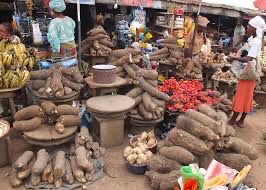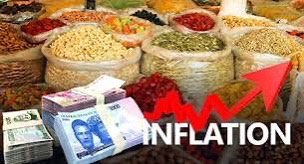The average cost of imported food items in Nigeria increased to a record high of 34% between April 2023 and April 2024, marking a 200 basis points rise from the previous month. The rise was attributed to various factors including global supply chain disruptions due to the Covid-19 pandemic and the Russia-Ukraine conflict, as well as the surge in global oil prices and foreign exchange challenges.
The Federal Government had initially banned food imports in an effort to tackle high food prices and economic difficulties in the country. In April 2024, Nigeria experienced its 16th consecutive month of inflation, triggered by a triple increase in electricity prices and rising transportation costs.
Inflation rates in April 2024 were higher compared to the previous year, with food inflation reaching 40.53% year-on-year. This significant increase was mainly due to escalating prices of food items such as millet flour, garri, bread, and yam.

The Financial Derivatives’ report highlighted that the official national data did not factor in petrol shortages and anticipated capturing its impact in the next report. The continued rise in inflation rates might prompt another interest rate hike by the central bank to control price increases and support the local currency. Food inflation in various states showed significant spikes, with Kogi topping the list at 40.84% for all items and 48.62% for food items. Other states like Kwara, Ondo, Osun, Akwa-Ibom, Edo, Abia, Rivers, Oyo, and Ebonyi also experienced high rates of inflation. Lagos recorded the highest surge in food and all items inflation.

Economists from Financial Derivatives suggested that the inflation rise was expected due to currency pressures and higher food prices exacerbated by seasonal factors. They anticipated that the Central Bank of Nigeria might consider raising interest rates by 50 or 100 basis points to align with global trends.
The recent data revealed an increase in headline inflation driven by food prices and forex challenges, making inflation a more structural concern in Nigeria. The analysis pointed out uncertainties surrounding diesel prices and forex market fluctuations as key factors impacting inflation expectations. The upcoming monetary policy committee meeting might lead to a rate hike to curb inflation, aligning with actions by other central banks worldwide.
From: Amadi Vincent

































